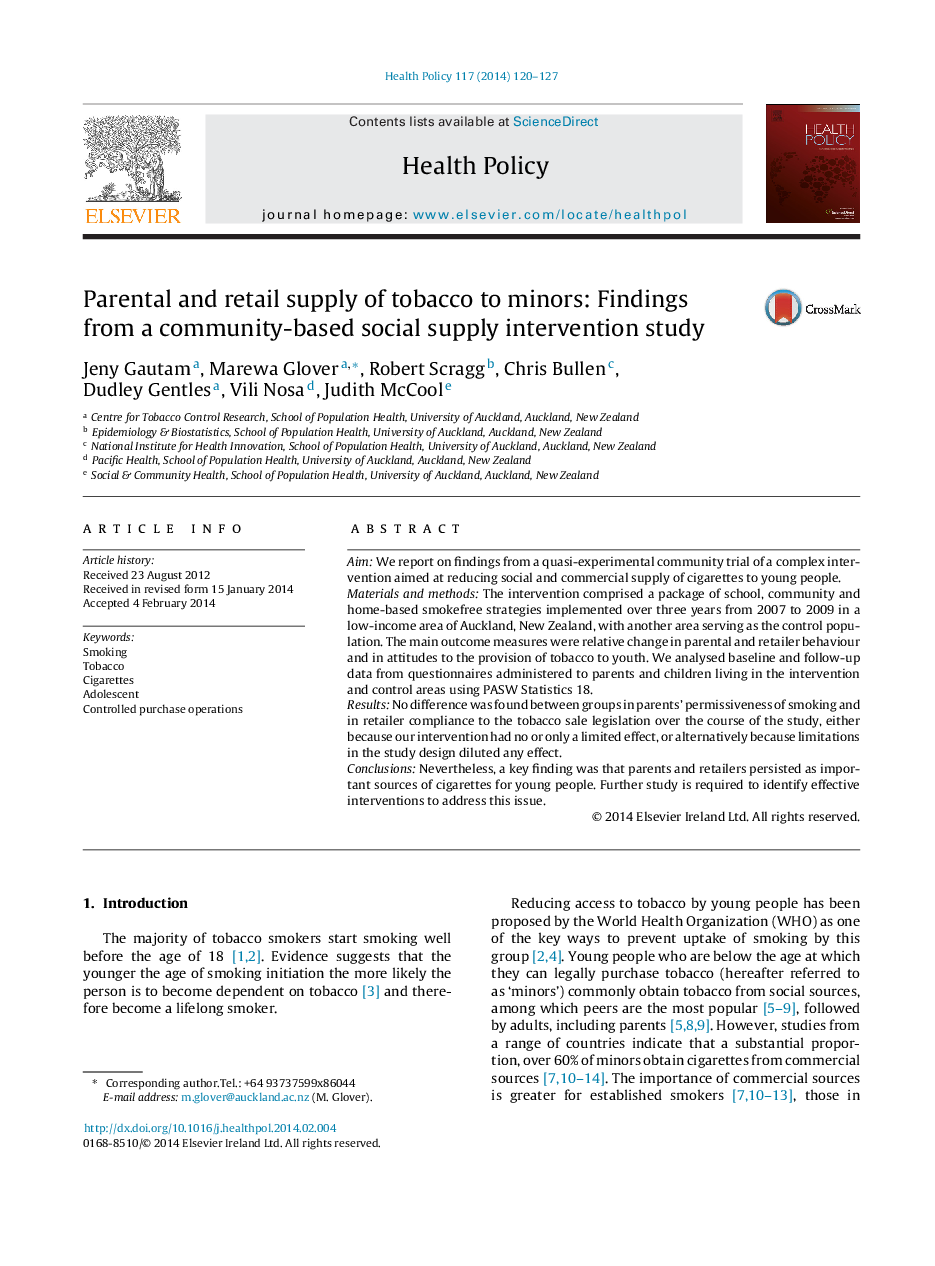| Article ID | Journal | Published Year | Pages | File Type |
|---|---|---|---|---|
| 6239713 | Health Policy | 2014 | 8 Pages |
AimWe report on findings from a quasi-experimental community trial of a complex intervention aimed at reducing social and commercial supply of cigarettes to young people.Materials and methodsThe intervention comprised a package of school, community and home-based smokefree strategies implemented over three years from 2007 to 2009 in a low-income area of Auckland, New Zealand, with another area serving as the control population. The main outcome measures were relative change in parental and retailer behaviour and in attitudes to the provision of tobacco to youth. We analysed baseline and follow-up data from questionnaires administered to parents and children living in the intervention and control areas using PASW Statistics 18.ResultsNo difference was found between groups in parents' permissiveness of smoking and in retailer compliance to the tobacco sale legislation over the course of the study, either because our intervention had no or only a limited effect, or alternatively because limitations in the study design diluted any effect.ConclusionsNevertheless, a key finding was that parents and retailers persisted as important sources of cigarettes for young people. Further study is required to identify effective interventions to address this issue.
